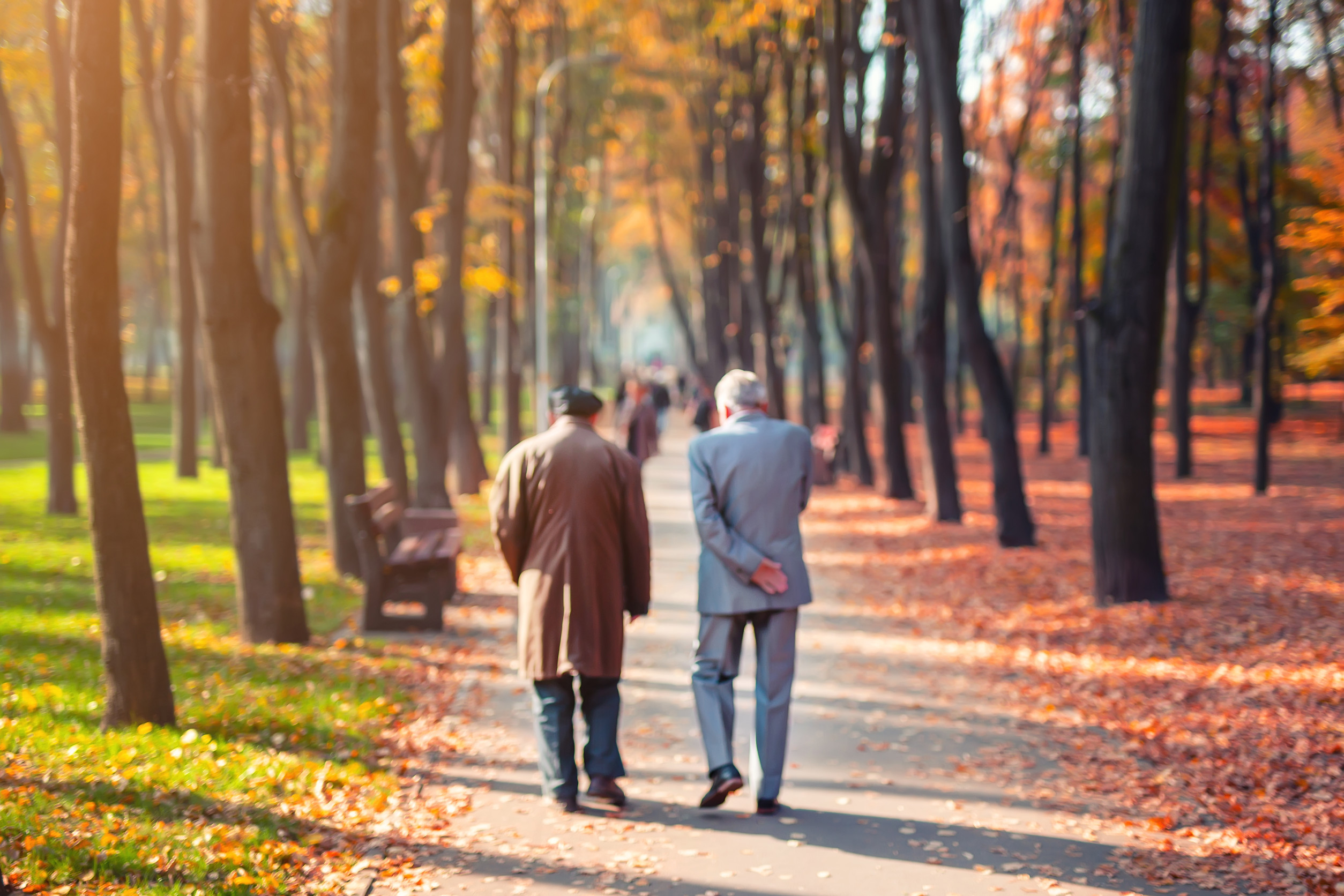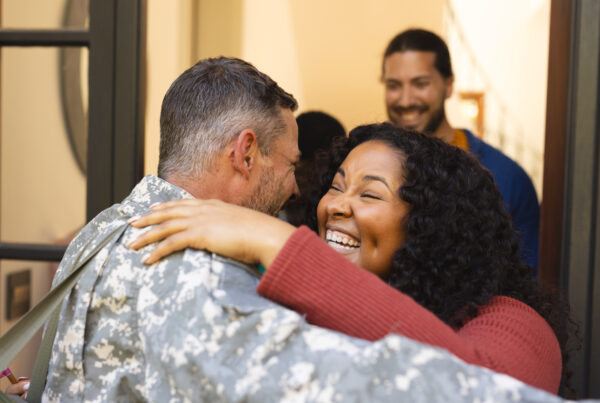”Question: What are everyday mental health tools that would support military Veterans?
Reading time: 5 Minutes
MWi Hack:
- The most powerful mental health tools cost nothing—a walk with a friend, three deep breaths, or naming what you’re grateful for can instantly shift your mood and build long-term resilience.
MWi Summary:
- Walk with a friend – Combines mood-boosting movement, fresh air, and meaningful connection to naturally reduce anxiety and strengthen relationships
- Practice mindful breathing – Just 5 minutes of intentional breathing activates your body’s relaxation response and provides instant stress relief anywhere, anytime
- Express daily gratitude – Naming 3 things you’re thankful for rewires your brain toward positivity and significantly reduces depression and anxiety
- Stay present with mindfulness – Focusing on the here-and-now breaks the cycle of anxious future-thinking and depressive rumination about the past
- Spend quality time with loved ones – Meaningful connections combat isolation, provide emotional support, and remind us we’re not alone in our struggles
Mental Health Awareness Month reminds us that wellness doesn’t always require expensive therapy sessions or complex treatment plans. Some of the most powerful tools for mental health are already within our reach, woven into the fabric of daily life. These simple practices—walking with a friend, practicing mindfulness, expressing gratitude, focusing on our breath, and spending quality time with loved ones—can create profound shifts in our mental well-being.
The Science of Simple Connection
When we walk with a friend, we’re engaging in what researchers call “bilateral stimulation”—the rhythmic, cross-lateral movement that naturally calms the nervous system. This gentle, repetitive motion helps process emotions and reduce anxiety while the act of walking side-by-side creates a unique form of intimacy. There’s something about moving forward together, literally and figuratively, that makes difficult conversations feel more manageable and connections deeper.
The combination of physical movement, fresh air, and meaningful conversation triggers the release of endorphins and serotonin—our body’s natural mood elevators. Walking with someone also provides accountability and social support, two crucial factors in maintaining mental health. It’s remarkable how a simple 20-minute walk can shift perspective, lighten emotional burdens, and strengthen relationships.
Mindfulness and Gratitude: Rewiring Our Mental Patterns
Mindfulness—the practice of being fully present in the moment—costs nothing but yields tremendous mental health benefits. When we focus on the here and now, we break free from the cycle of anxious future-thinking and depressive rumination about the past. Even five minutes of mindful breathing or observation can reset our nervous system and provide clarity.
Gratitude practices work similarly, training our brains to notice positive experiences rather than defaulting to negative patterns. Research shows that people who regularly practice gratitude experience lower levels of depression and anxiety, better sleep quality, and improved relationships. The simple act of naming three things we’re grateful for each day rewires our neural pathways toward positivity and resilience.
The Power of Breath
Breathing is something we do automatically, yet conscious breathing is one of our most underutilized mental health tools. Deep, intentional breathing activates the parasympathetic nervous system, signaling to our body that we’re safe and can relax. Techniques like box breathing—inhaling for four counts, holding for four, exhaling for four, and holding for four—can quickly reduce stress hormones and bring us back to baseline.
The beauty of breathwork lies in its accessibility. Whether we’re in a crowded room, stuck in traffic, or lying in bed unable to sleep, our breath is always available as an anchor to calm and centeredness.
Quality Time: The Foundation of Mental Wellness
Spending meaningful time with loved ones and friends isn’t just enjoyable—it’s essential for mental health. Human beings are wired for connection, and isolation is one of the strongest predictors of depression and anxiety. Quality time doesn’t require elaborate plans or expensive activities. Sharing a meal, having a heartfelt conversation, playing a game, or simply being present with someone can provide the emotional nourishment we need to thrive.
These connections remind us that we’re not alone in our struggles and that we matter to others. They provide perspective, support, and often the gentle accountability that helps us maintain healthy habits and positive outlooks.
Critical Importance for Military and Veteran Communities
For military service members and Veterans, these simple practices take on even greater significance. The military experience often involves high-stress situations, trauma exposure, and frequent relocations that can disrupt social connections. Traditional therapy, while valuable, may feel stigmatized or inaccessible within military culture.
The beauty of these everyday mental health tools is that they align with military values of resilience, self-reliance, and looking out for fellow service members. Walking with a battle buddy, practicing tactical breathing techniques, or maintaining connections with military family members becomes both familiar and healing.
Veterans transitioning to civilian life often struggle with purpose and belonging. These simple practices can provide stability and continuity during difficult transitions. A morning gratitude practice can help reframe civilian challenges, while regular walks with a trusted friend can process the complex emotions of leaving military service.
For those dealing with PTSD, depression, or anxiety—conditions that affect significant portions of the military community—these accessible tools can complement professional treatment and provide immediate relief when symptoms arise.
The Path Forward
Mental Health Awareness Month should remind us that healing often happens in quiet, ordinary moments. While professional help remains crucial for serious mental health challenges, these simple practices can serve as both prevention and daily maintenance for our psychological well-being.
The power lies not in their complexity, but in their consistency and accessibility. Every day offers opportunities to walk with a friend, breathe deeply, express gratitude, practice mindfulness, or connect meaningfully with others. In a world that often feels overwhelming, these simple acts become radical forms of self-care and community care.
For our military and Veteran communities, embracing these tools isn’t just about individual wellness—it’s about maintaining the strength and resilience that enables service to others. Sometimes the most powerful medicine comes not from a prescription bottle, but from the simple act of putting one foot in front of the other with a trusted friend by your side.
Through our responsive content and dedicated support, MWi continues to serve the modern military and Veteran community by providing relevant, practical strategies for enhancing connection and wellness.






